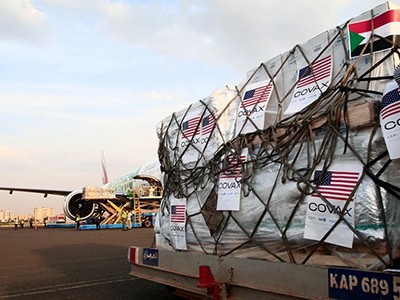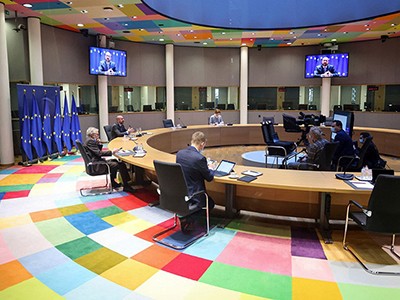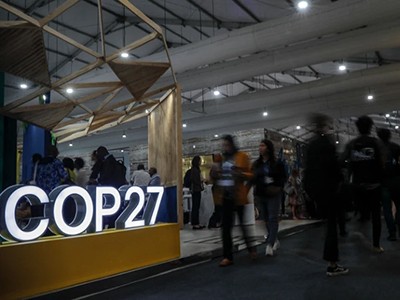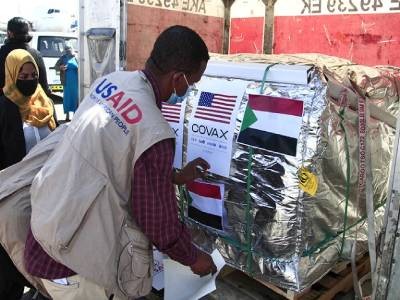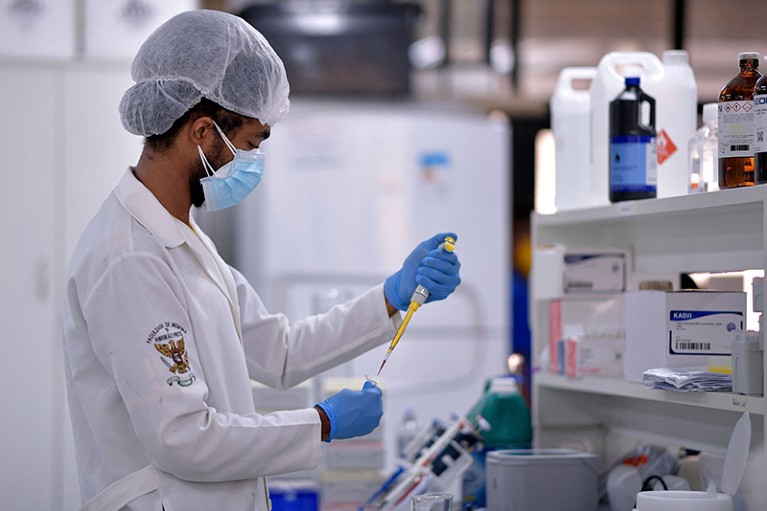
Laboratories in nations similar to Brazil offered early warning of the emergence of SARS-CoV-2 variants by sequencing their genomes.Credit score: Douglas Magno/AFP through Getty
Final week, negotiators met to debate the most recent draft of a ‘pandemic treaty’ — an settlement amongst nations worldwide about methods to finest reply to the subsequent huge outbreak. One sticking level within the draft is methods to pretty compensate nations for sharing viral-genome sequences.
What the WHO’s new treaty might imply for the subsequent pandemic
Throughout the COVID-19 pandemic, researchers in nations from Brazil to South Africa to India stored tabs on how SARS-CoV-2 was evolving by figuring out the genetic sequences of viruses collected from contaminated individuals. They then uploaded these sequences to on-line data-sharing platforms, enabling the event of vaccines. However lots of the nations that uploaded sequences have been gradual to obtain the photographs, in the event that they acquired them in any respect.
This disconnect units up a state of affairs by which disease-affected nations would possibly at some point determine to maintain data to themselves — an consequence that could possibly be disastrous globally. To swiftly rein in a future pandemic, an equitable system for sharing information is required, researchers and officers say.
The hope is that the pandemic treaty will set up such a system, however, as negotiations have proven, will probably be troublesome to get nations to agree on what it ought to appear to be. “There’s room for settlement, as a result of all nations need a dependable system,” says Suerie Moon, a global-health-policy researcher on the Geneva Graduate Institute in Switzerland. However “hammering down the small print isn’t straightforward”.
A worldwide-health controversy
The concept that a rustic would possibly determine to not share viral data without spending a dime has precedent. In 2007, Indonesia stopped sharing samples of the avian influenza virus H5N1 with the World Well being Group (WHO), which screens influenza globally and makes suggestions for vaccine composition. On the time, H5N1 was spreading globally and Indonesia had the best variety of infections in people.
World commits to a pandemic-response pact: what’s subsequent
The nation made its determination as a result of a pharmaceutical firm in Australia supposed to make use of a viral pattern offered by Indonesia to develop an H5N1 vaccine — a product that the middle-income nation would in all probability have struggled to afford. Withholding samples was Indonesia’s method of protesting towards what it noticed as an unfair system.
The controversy ultimately led to the event of the Pandemic Influenza Preparedness Framework, WHO steering that units the bottom guidelines of knowledge sharing in trade for entry to vaccines and different advantages. However the guidelines, adopted in 2011, apply solely to influenza viruses.
For the time being, entry to different viruses is, in concept, ruled by the Conference on Organic Range (CBD), an settlement signed by 196 nations to guard the world’s wildlife. In 2010, a supplementary settlement, the Nagoya Protocol, was added to the CBD, stating that any firm or researcher searching for to make use of genetic sources from a selected nation — together with viral samples — should acquire permission from that nation and attain an settlement on how the events would share any potential advantages from that materials.
However these agreements don’t regulate the sharing of knowledge, together with viral genomes, and didn’t stop inequity throughout the COVID-19 pandemic. For instance, South Africa, which alerted the world to SARS-CoV-2 variants similar to Omicron and Beta, has absolutely vaccinated solely round 40% of its inhabitants towards COVID-19.
International pandemic treaty: what we should be taught from climate-change errors
Some public-health specialists suppose oversight of viral-genome profit sharing needs to be given to the WHO, an company geared in direction of public well being. The newest draft of the group’s pandemic treaty dedicates a whole article to the topic, with an eye fixed in direction of establishing that oversight.
The draft is a “massive deal” as a result of it goals to place pathogens, particularly these with pandemic potential, beneath a public health-focused framework, fairly than a biodiversity framework, says Amber Hartman Scholz, head of the science coverage division at Leibniz Institute DSMZ, which homes a set of microorganisms and cell cultures in Brunswick, Germany.
A troublesome negotiation
However for the pandemic treaty to manipulate profit sharing for pathogen information, a variety of hurdles will must be overcome.
Many low- and middle-income nations received’t need the accord to include any authorized obligation that they monitor for potential pathogens and make the info accessible internationally, says Pierre du Plessis, considered one of Africa’s lead negotiators on genetic sources, based mostly in Windhoek, Namibia. “We’re all fairly involved about defending the sovereign proper to regulate entry to genetic sources, and never giving that up with out a minimum of getting one thing substantial in return,” he says.
International plan for coping with subsequent pandemic simply acquired weaker, critics say
Against this, pharmaceutical firms say {that a} transactional settlement, by which they have to make a cope with a nation amid a disaster, causes delays within the growth of remedies and vaccines. It additionally results in the “severe politicization of pathogen sharing”, says Thomas Cueni, director-general of the Worldwide Federation of Pharmaceutical Producers and Associations (IFPMA), based mostly in Geneva.
Potential options to the issue have come from all sides. One, proposed by a gaggle of African nations throughout the CBD negotiations, can be to deposit into a worldwide fund 1% of retail gross sales from merchandise, similar to vaccines and diagnostic gear, developed with viral-genome sequences. “Let’s use that cash to assist conservation, sustainable use, capability growth and expertise switch,” du Plessis says. As an illustration, low- and middle-income nations might use such funds to raised equip themselves for doing viral surveillance.
Pharmaceutical firms have proposed another choice. “Firms, what occurred within the pandemic, mentioned that we’re keen to commit a part of our real-time manufacturing [of vaccines and other products] for speedy allocation by worldwide establishments to populations in creating nations,” Cueni says. IFPMA has formally offered this answer in a proposal it has known as the Berlin Declaration. In return, pharma corporations would anticipate governments to ensure the “speedy and unhindered” sharing of knowledge.
Subsequent steps
Which answer can be included into the pandemic treaty stays to be seen. Presently, negotiators are discussing whether or not to incorporate language that incentivizes information sharing by making certain that, for instance, a selected proportion of pandemic-related merchandise are distributed in low- and middle-income nations. The worldwide committee answerable for drafting the treaty has lower than one 12 months to come back to a consensus and submit a closing model to be voted on by the WHO’s member states on the subsequent World Well being Meeting in Could 2024.
Some nonetheless maintain out hope {that a} robust dedication to low- and middle-income nations can be inserted into the doc. If nations aren’t motivated to share data, says epidemiologist Salim Abdool Karim, director of the Centre for the AIDS Programme of Analysis in South Africa, based mostly in Durban, “then that mainly means we received’t have a worldwide early-warning system in place to forestall the subsequent pandemic”.
